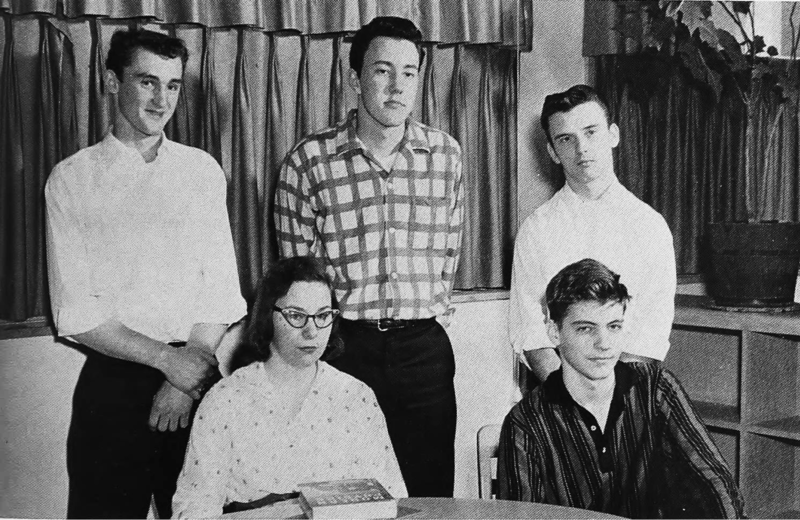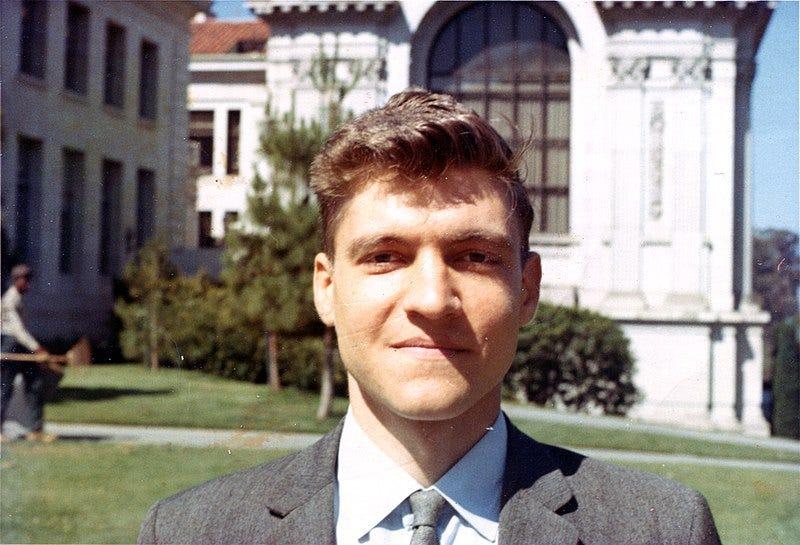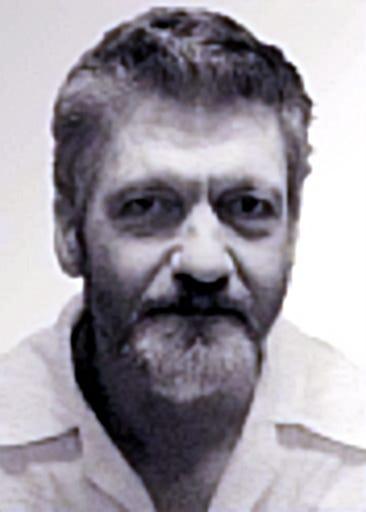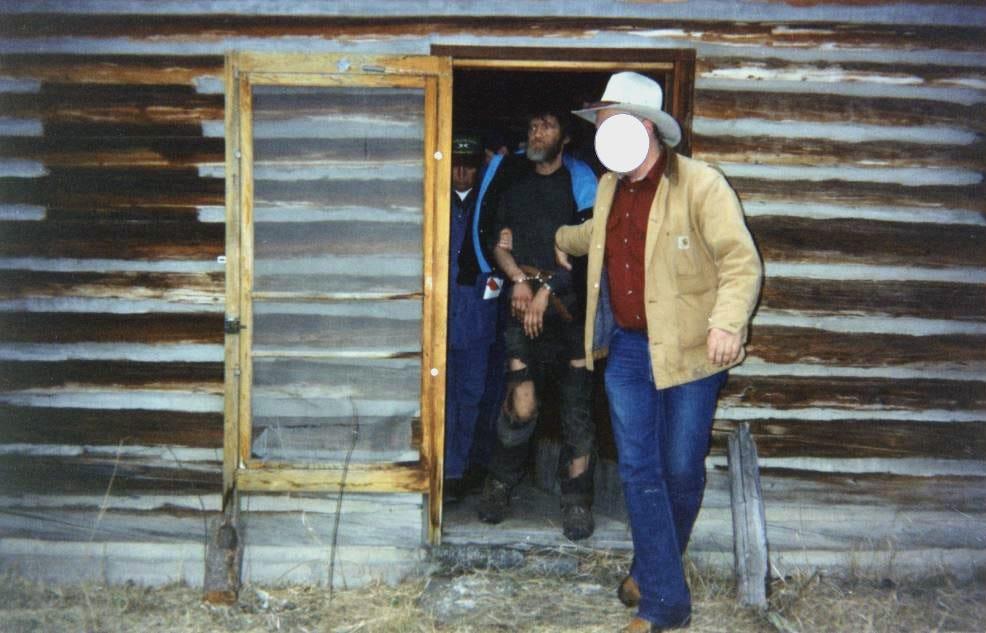Tove K.
Unfortunately, I am the Unabomber
About half a year ago my friends Robin and Ana urged me to read the Unabomber manifesto by Ted Kaczynski. The Unabomber's thoughts were very similar to mine, they claimed. As a principle, I always try to read whatever people recommend for me to read. I like reading, so why not? But here I made an exception and shirked. I really don't like to think of violence. I'm squeamish and oversensitive to the degree that I can't see an entirely normal movie without feeling upset (sometimes even children's cartoon movies make me feel bad). I had already read the Wikipedia page about the Unabomber and thought I was finished thinking about the lost lives, eyes and fingers he had caused.
Half a year later, I got to know that Robin was astonished that I still hadn't read the Unabomber Manifesto. So I finally did read it. It just took a couple of pages to understand why Robin and Ana had recommended it so persistently. Ted Kaczynski's ideas were my ideas. Although in the 1990s, when Kaczynski wrote his manifesto, evolutionary psychology was not a big thing, he was totally into it. Ted Kaczynski claimed that humans have evolved to work for subsistence. The overwinning of real difficulties is the only way humans can feel fulfilled, he wrote. Industrial society only offers surrogate activities like sports and hobbies. While some individuals are happy with their surrogate activities, many see through them and suffer from a deep lack of meaning. Industrial society offers those people antidepressants so they can cope better with a life far away from human nature.
I could have written that myself. Even in the details, I found thoughts I have had myself but have found in few other places. For example, the thought that what Westerners call "corruption" is what traditional societies call "loyalty". Or the idea that in modern society, people are allowed to do whatever they want, as long as it is unimportant to society. Yes, I even wrote about it here: Sexuality is free because it is unimportant. Obviously Ted Kaczynski had that thought decades before me. Ted Kaczynski even urged revolutionaries to have many children because children tend to inherit their parents' worldviews, an opinion strikingly similar to this recent post I wrote.
And just like me, Ted Kaczynski was more of a thinker than a writer. His writing style might be more readable than the average Substack, but not by much, despite the fact that he had years in which to edit his text. Most probably Ted Kaczynski had problems formulating his ideas. His manifesto is written as a numbered list of points. That works. But it would have been much more striking had it been written in running text in the form of a book or a series of essays.
My terrorist doppelganger?
It turned out I did not only share ideas with the Unabomber. When I read more about Ted Kaczynski I found some eerie similarities with my own life. On Wikipedia I could even read that he had an obsession with wood, to the degree that he primed his bombs with wood pieces, as a kind of talismans.
At first I found it a bit upsetting that I shared so many similarities with a terrorist like the Unabomber. I would so much rather have a nice doppelganger. But then I thought some more and realized I have always had to contend with unpleasant companions. When I was a teenager, I was a communist. I mean, a classic, hard core communist. Between ages 14 and 18, I was an active member of a communist youth organization. During my time as a communist, I didn't have one violent, unpleasant opinion colleague to deal with. I had millions of them. I thought it was a problem. I really, really did. My comrades got rather tired of my relentless questioning of how we were going to make a revolution without repeating the horrors and mistakes of the Soviet Union or China. But still, I managed to remain a communist for years, in spite of all the senseless acts of violence perpetrated in the name of communism. One single terrorist (partially) sharing my thoughts today should be nothing in comparison.
In the mind of a terrorist
My interest piqued, I dove into the world of Ted Kaczynski. First I read his own manifesto. Then I read his brother's essay about growing up with the future Unabomber. I read his neighbor's book about him. I even forced my family to watch the biographical film Ted K. I especially found David Kaczynski's short essay about his brother useful.
Ted Kaczynski was born in 1942 in Chicago and his brother David was born in 1949. The family was working class: Their father was a sausage maker and their mother a homemaker. But his parents also had intellectual interests and his father guided his sons to his love of nature. The family moved to a suburban house with a view of the open fields in 1952.
David tells about a brother who could be warm and caring, but who could also seem judging and aloof. David definitely does not describe Ted as your average child sociopath. At the age of ten, he crafted a door handle to his then three year old brother, who was too short to reach the ordinary handle. Once their father caught a baby rabbit in a cage in order to let the children have a look at a wild animal. When Ted saw it, he instinctively asked his father to release the rabbit because it looked afraid, making the others see the situation from the point of view of the rabbit.[1]
Ted Kaczynski was no obvious murderer-to-be. Still, David could sometimes sense there was something wrong with his brother. When he asked his mother, she explained that when Ted was nine months old, he had to be in the hospital for a week without his parents. That made him deeply traumatized, his mother believed.
Such beliefs were entirely normal in the heavily environmentalist mid 20th century, both among normal people and scientists. But that belief might have stood in the way of seeing the difficulties Ted actually had. From the limited information I have, I suspect that a modern psychologist would have diagnosed Ted with high-functioning autism as a child (the criteria for that diagnosis have broadened significantly since the mid 20th century and now includes a percent or two of the population). Ted obviously had social difficulties and he also seems to have been unusually sensitive to sound, two very common symptoms of autism. Ted's parents considered him a normal, but highly intelligent child who somehow had to overcome an early childhood trauma. That picture offered him little help in overcoming his difficulties.

The five merit scholarship finalists of Evergreen Park High School, 1958. The handsome young man sitting in the bottom right corner is Ted Kaczynski. Wikimedia commons.
During his teens, Ted became increasingly interested in mathematics, a subject he quickly excelled in. At age 16 he was admitted to Harvard University where he made a quick and straight-forward career as a mathematician, becoming assistant professor at age 26. As a mathematician he was brilliant but as a teacher he was abysmal. He was described as almost pathologically shy. In 1969, at the age of 27, Ted chose to abandon academic life altogether. He first moved back to his parents and then purchased a piece of land outside Lincoln, Montana, where he built a small cabin. Given the ethos of the time, Ted's dropping out of academic life seemed like almost a heroic thing, David recalled.

Ted Kaczynski as a young faculty member at Berkeley, 1968, Wikimedia Commons
For the next 25 years, Ted lived in the small mountain cabin. Mostly he lived from what the land could provide. In his spare time he vandalized machines and property and crafted bombs he sent to selected targets, killing 3 people and injuring 23 to different degrees. And finally, in the 1990s, he wrote his manifesto and demanded that a national newspaper publish it or else he would continue his bombing campaign. That would be his fall. Despite the many acts of vandalism in the area where he lived, he was never formally suspected of anything. But when his manifesto was published, his brother's wife Linda recognized his style of writing. David and Linda tipped off the FBI. Through a plea bargain to escape the death penalty, Ted Kaczynski was sentenced to eight lifetimes in prison. He is still alive and still in prison, now 80 years old.

Kaczynski’s arrest on April 3, 1996 at his cabin near Lincoln, Montana, Wikimedia Commons

Ted Kaczynski in prison, 1999, Wikimedia commons
A herd of one’s own
A few aspects of Ted Kaczynski's upbringing are very similar to my own. Just like me, Ted Kaczynski was from a working class background. Just like me, he was considered "a walking brain" more than a person by peers when growing up. And just like me, he was expected to find his right place in society somewhere else.
When I was a teenager I felt severely out of place. Everybody knew I didn't belong, myself most of all. I naively blamed it all on the small town I lived in. I seriously thought that small-town life made people conformist and that I simply couldn’t thrive in such an environment. As soon as I started university in the big city, I would find people like me. At least, that was what I thought and hoped. My parents couldn't tell me I was wrong. What did they know?
Ted Kaczynski seems to have gone through something similar. David Kaczynski once asked his father what was wrong with Ted, why didn’t he have any friends? His father replied that Ted would find his place once he got to college and could meet other young people who shared his interests. There he would find friends and someone to marry. Ted would eventually "find himself", his father predicted. It might just take him a bit longer.[2]
My first year in the big city was the worst crisis of my life. Only a week or so after I got there I met a communist comrade of my own age who explained that she, too, had had a very hard time growing up. I was earnestly surprised. "How can she feel bad?” I remember thinking. She grew up in Gothenburg, a city of almost a million people. I had blamed all my problems on growing up in a small town. As soon as I moved to a city, I got to know that people there had problems too.
Before I turned 18, I assumed I was a rather normal person who just happened to be in the wrong place. As soon as I found my flock of people everything would be fine. My first year in the city showed me how utterly wrong I had been. The city was just a larger version of my small town. There was no flock for me. I wasn’t normal. I sank deep into depression. A depression that really didn’t lift until I realized that if I couldn’t find a flock that would have me I would have to create my own flock.
But he was also plain mad
Reading the Unabomber Manifesto was like reading an uncanny mixture of my own thoughts and pure madness. Ted Kaczynski and I had somewhat similar upbringings. We have a somewhat similar view of society. And we share quite a lot of ideas. There is, however, one important point where we differ significantly. While I realized that people are not like me and I would have to found my own flock, Ted Kaczynski seems to have never had this revelation. To judge from his book, he assumed that most people would be like him if only society hadn’t corrupted them. This made him a mortal enemy of society.
Making assumptions about what people are up to while hiding away from people in a mountain cabin does not strike me as very intelligent. Yet Ted Kaczynski was clearly very intelligent. It makes me think of an early post I wrote about how stupid high IQ people can really be. Ted Kaczynski isolated himself from people and still thought he understood what people were feeling. That is stupidity bordering on madness.
Another thing that annoyed me with Kaczynski’s writings is his disregard for history. He obsessively writes about technology limiting freedom. But in what society did people have freedom? In almost all societies throughout history, freedom has been limited to a select few. One might also think that someone obsessed with the thought of low-tech society, like Ted Kaczynski clearly was, should find it worthwhile to study some of the many low-tech societies that history is filled with. Still, to judge from his writings, Ted Kaczynski didn't study history much at all.
For those reasons I felt a bit relieved when I read his brother's verdict: Long before the Unabomber was revealed, David and his wife Linda started to suspect Ted was going mad. In the early 1970s, David recalls, Ted once explained that his ideal for human social relations was that of a small-scale group of hunter-gatherers. He then explicitly mentioned their family as such an ideal small-scale group. As Ted lived in the mountains during the 1970s, his view of his parents deteriorated. In the late 1970s, he wrote them vitriolic letters and ceased all contact with them. He blamed them for never really having loved him, for having pushed him academically in order to enhance their own egos and for failing to teach him social skills because they didn't care about his happiness.[3]
There probably was a grain of truth in it. From David's account, the Kaczynski parents were very permissive and thought Ted was perfectly functioning albeit in his own way. They thought that there was a great place for a person like Ted somewhere else. That way, they failed to help him with the difficulties he most probably actually had. But a very intelligent person like Ted Kaczynski should be able to see that his parents weren't pure evil. From my point of view it looks like Ted developed a rather normal kind of half-craziness, where he created intellectual explanations to why the world was exactly like he felt it was.
Life has taught me about this kind of half-craziness, bit by bit. You meet a person and they seem normal. Then you start to notice a steadfast lack of intellectual flexibility. Normal people can be intellectually inflexible for social reasons, for example Woke. They move along with their herd. Half-crazy people are intellectually inflexible for their very own reasons. They make up elaborate theories to go with their emotionally based perception of the world. And they declare anyone critical of their theories an enemy. Even so, only very few of them proceed to kill those enemies. Ted Kaczynski was one of those very few people who got convinced everything he felt and thought was true, who thought killing people was a great idea and who was intelligent and determined enough to actually do it.
Fortunately, I am not the Unabomber
If there is anything we can learn from the Ted Kaczynski case, it is that no person is a pure intellect. Even if people seem to need no one and to be made for purely intellectual pursuits, they are in reality not.
Ted Kaczynski was supposed to be a very special kind of person: A professional mathematician. He himself found out he wasn't that special. He was a human like others, needing purpose and community.
We have a system that is supposed to gather intellectually talented people in a kind of reserve called academia. There they are supposed to lead and teach young people, whether they are good with people or not. They are supposed to postpone breeding into their mid-30s. Ted Kaczynski was thrown into this system as a 16 year old. He was very talented, so everyone thought he belonged there. As an adult, he decided that he did in fact not belong there and from this revelation came the idea that no human was made to live like that.
Ted Kaczinski need not have been wrong there. Humans are at their core animals, guided by a set of instincts that make us strive for community and purpose. Unusual intelligence allows some people to have more advanced conversations, read and write more advanced texts and maybe, hopefully, understand the world a little better. But this is only a topping. At our core, we are our biological instincts and in order to live our lives to the full we need to square our intellectual pursuits with our animal instincts.
Ted Kaczynski discovered that. I discovered that. I cured myself with evolutionary psychology through jumping off the unrealistic expectations put on studious people and starting a life better suited to a human being. Ted Kaczynski also jumped off. But, unlike me, he didn't have a human-friendly environment to jump into. Instead he jumped into an abyss of loneliness and madness. Not all woods are Eden.
Sources:
https://en.wikipedia.org/wiki/Ted_Kaczynski
https://www.chicagotribune.com/chi-080302ted-photogallery-photogallery.html
Industrial Society and its Future by Ted Kaczynski
Missing Parts by David Kaczynski in Brothers: 26 Stories of Love and Rivalry, can be read at The Internet Achive
Unabomber: The Secret Life of Ted Kaczynski by Chris Waits and Dave Shors Kaczynski in prison, 1999, Wikimedia commons
[1] Missing Parts by David Kaczynski, page 20
[2] Missing Parts by David Kaczynski, page 21
[3] Missing Parts by David Kaczynski, pages 23-24
